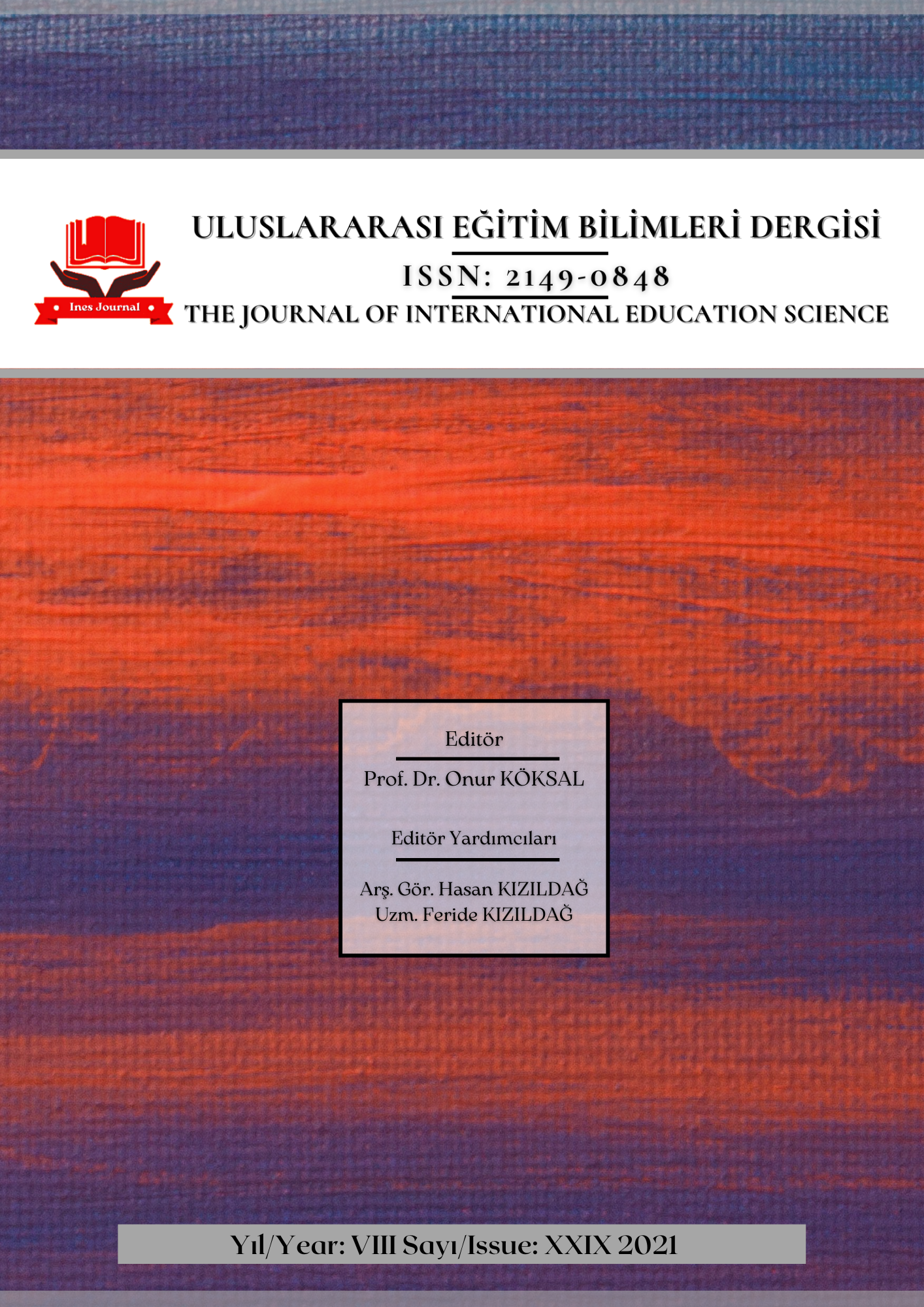Author :
Abstract
Sürekli değişen ve gelişen dünyamızda yeniliklere ayak uydurabilen, çağdaş ve kendi kendine kalkınan sağlıklı ve mutlu bir toplum olmanın yolu eğitimden geçmektedir. Türkiye nüfusu içerisinde genç nüfus oranının fazlalığı gençlerden en üst düzeyde faydalanmasını ve onlar için iyi bir eğitim almalarına imkân sağlayacak ortamın oluşturulması gerekmektedir. Çocuklar için en iyisini ve en doğrusunu seçmek ailelerin öncelikli sorumlulukları arasında yer almaktadır. Bu seçimler arasında en zor olanlarından birisi de okul tercihleri döneminde yaşanmaktadır. Bu süreç içerisinde ilk seçenek özel okul, devlet okulu tercihi arasında başlamaktadır. Ailelerin özellikleri, çocuklarının geleceğe yönelik planları doğrultusunda belirli kararlar vermeye çalışırken karar vermede etkin rol oynar. Aileler çocukları için en doğru kararları almaya çalışırken kişisel yararı ön planda tutarken, özel okular ise kişisel çıkarlarını en üst düzeyde tutmaya çalışmaktadır. Günümüzde Özel okulların fiziksel yapıları, öğrencinin akademik başarısı üzerine vurgulanan reklamları sayesinde aileler tercihlerini okul ismi, öğrenci ve plasebo etkisi üzerinden değerlendirerek seçim yapma yoluna gidebilmektedir. Plasebo etkisi ile aile alternatifler arasından seçtiği özel okul sayesinde öğrencinin akademik yönden daha başarılı olacağına inanırken aynı zamanda fiziksel koşulların olumlu olmasıyla seçtiği özel okulu zihinde bir ikon olarak değerlendirilebilmektedir.
Keywords
Abstract
In the constantly changing and developing world, being a healthy and happy society that can keep up with innovations and develops on its own is only possible with education. The high rate of young population in Turkey requires an environment that can benefit from the young people at the optimum level and provide them with opportunities to receive good education. Among the primary responsibilities of parents is choosing the best and the right one for their children. One of the most difficult of these choices is experienced when trying to choose the right school. In this process, the decision-making process starts with choosing between private school and public school. The characteristics of families play an active role in making decisions while trying to make certain decisions in line with their children's future. While families try to make the right decisions for their children, both parents and private schools try to keep their personal interests at the forefront. Today, based on the physical structures of private schools and their advertisements emphasizing the academic success of their students, families can make their decisions based on the school’s name, student, and placebo effect. The parents believe that their student will be more successful academically thanks to the private school they choose from among the alternatives with the placebo effect, while at the same time, the private school they choose can be considered as an icon in the mind due to the positive physical conditions.
Keywords
- Batı, U. (2018). Tüketici davranışları. İstanbul: Alfa Yayıncılık.
- Demirci, K., Taşkın, E., Yuca, U. (2006). Öğrenen örgüt/pazarlama yönelimli öğre- nen okul boyutlarının analizi: Kütahya ili özel eğitim kurumları uygulaması. Akademik Bakış, 9, 1-12.
- Dronkers, J. ve Robert, P. (2008). School choice in the light of the effectiveness differ- ences of various types of public and private schools in 19 OECD countries. Journal of School Choice, 2(3), 260-301.
- Jacob, B.A. ve Lefgren, L. (2007). What do parents value in education? An empirical investigation of parents' revealed preferences for teachers? The Quarterly Journal of Economics, 22(4), 1603-1637.
- Parlar, H. (2006). Velilerin özel okul tercihlerini etkileyen faktörler ve özel okulların durumu. Yüksek Lisans Tezi. Yeditepe Üniversitesi Sosyal Bilimler Enstitüsü, İstanbul.
- Räty, H., Jaukka, P. ve Kasanen, K. (2004). Parents’ satisfaction with their child’s first year of school. Social Psychology of Education, 7, 463-479.
- Subaşı, B. ve Dinler, A. (2003). Dünyada ve Türkiye’de özel okullar. İstanbul: İstanbul Ti- caret Odası Yayını.
- Tam, F.W. (2007). Rethinking school and community relations in Hong Kong. Internati- onal Journal of Educational Management, 21(4), 350-366.
- Tamm, M. (2008). Does money buy higher schooling? Evidence from secondary school track choice in Germany. Economics of Education Review, 27(5), 536-545.
- Uygun, S. (2003). Türkiye’de dünden bugüne özel okullara bir bakış. Ankara Üniversite- si Eğitim Bilimleri Fakültesi Dergisi, 36(1-2): 107-120.
- Yavuz, Y. ve Yılmaz, E. (2012). Resmi ve özel ilköğretim okullarının okul kültürü üze- rine öğretmen ve öğrenci görüşleri. International Journal of New Trends in Arts Sports & Science Education, 1(3), 76-90.
- Zeybekoğlu, Z. A. (2007). Pazarlama ve özel okullar: Okul müdürlerinin hedef pazar- lamadaki rolü. Hasan Ali Yücel Eğitim Fakültesi Dergisi, 4(1), 173-186..
- URL-2: www.rehberliksitesi.com/aile/goster.asp?ID=255,2008)





